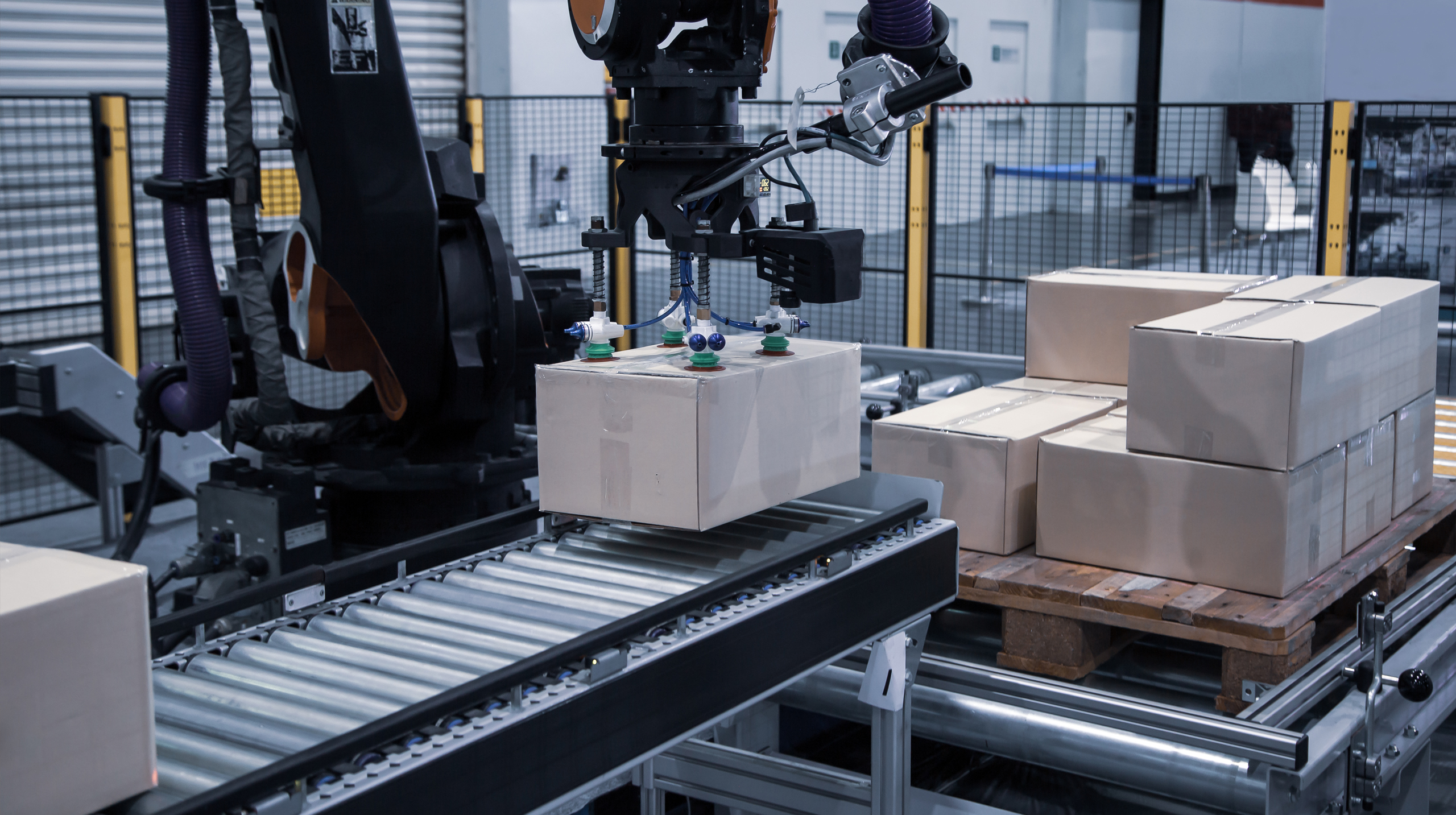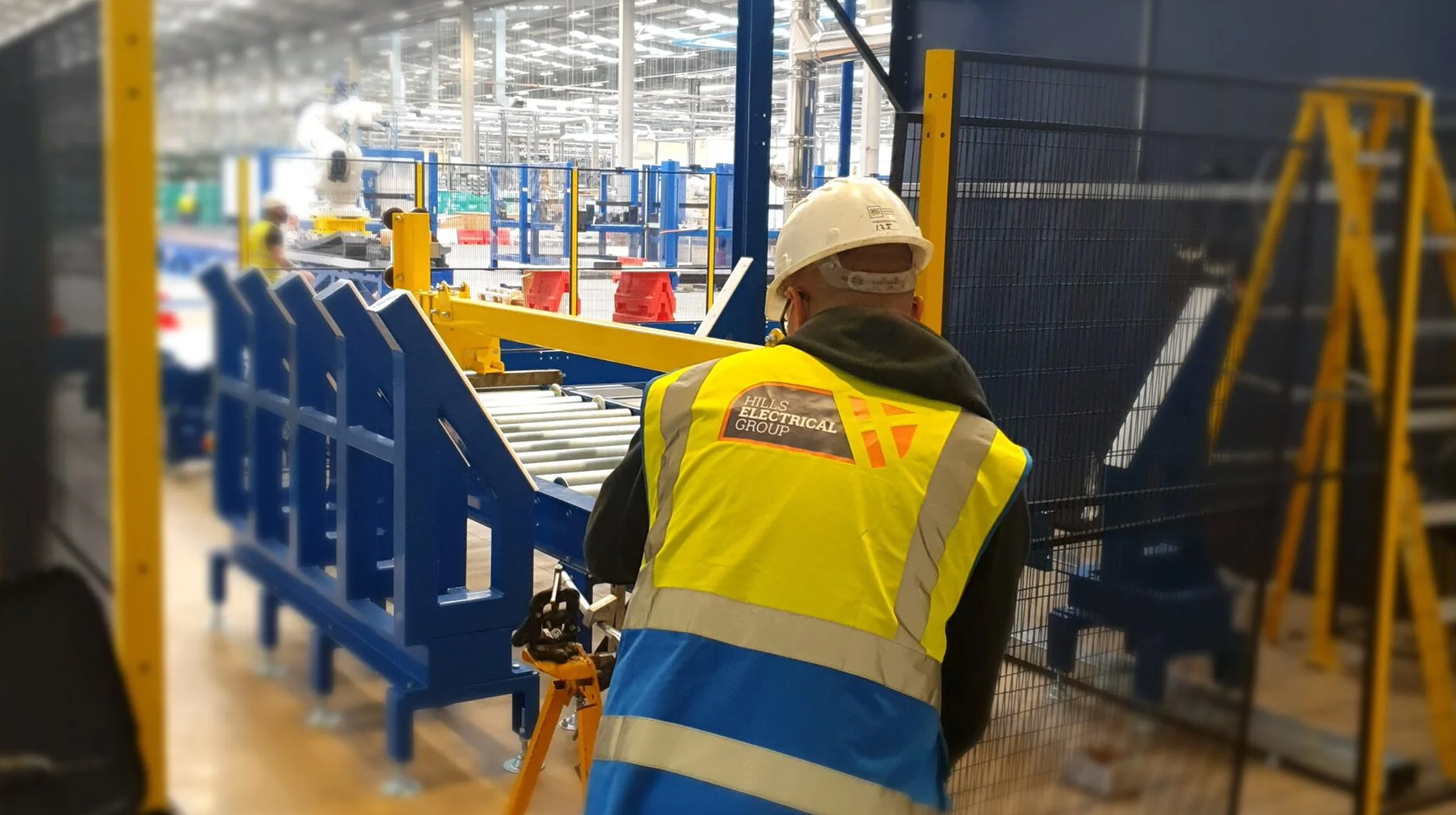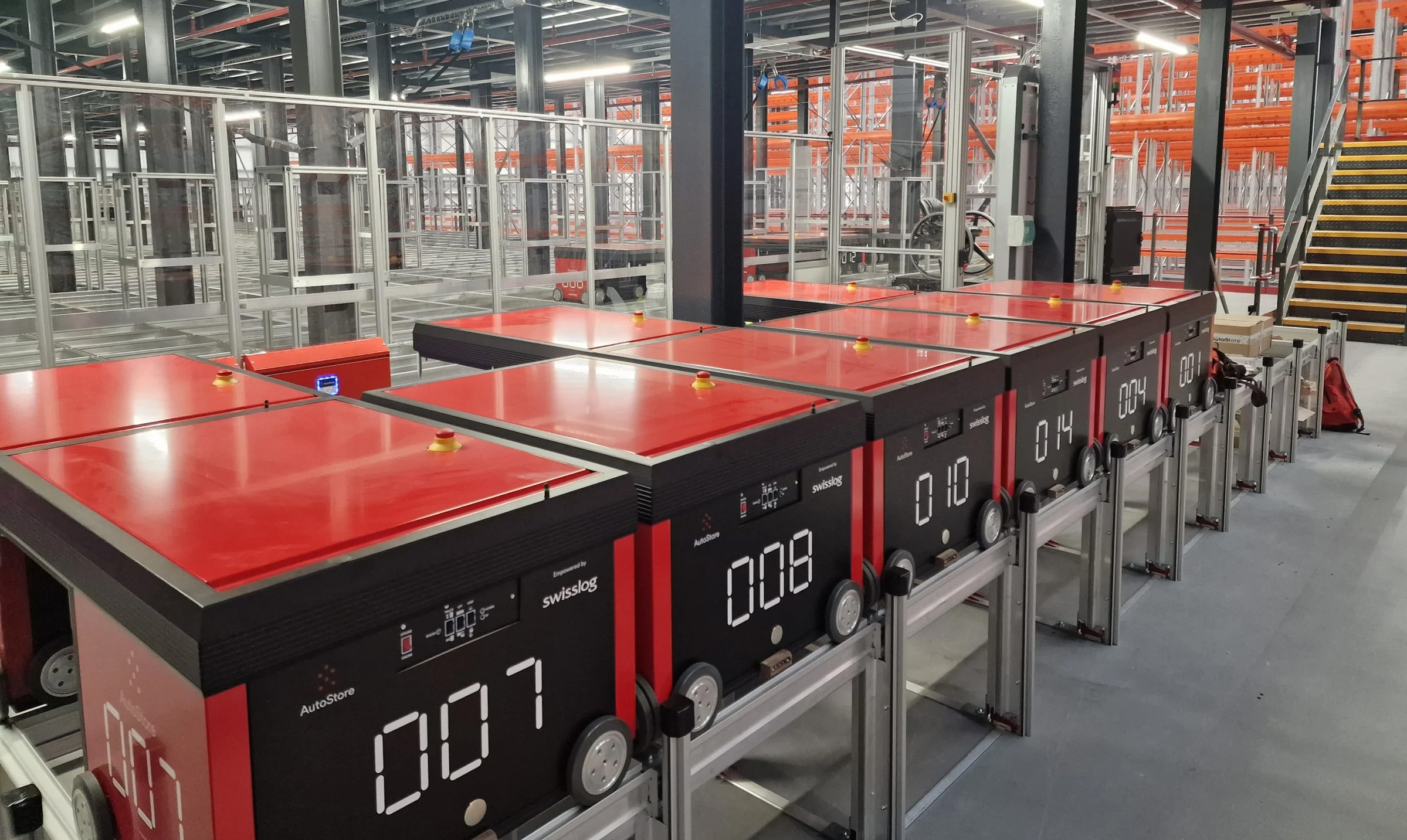We Are Now Autostore Installation Certified
Speak to a member of our team
Get in TouchDiscover how industrial control systems can increase your productivity and profits by integrating, monitoring, and managing your operations with precision.
With the user-friendly integration of intelligent digital technologies within manufacturing and industrial processes, industrial control systems provide the latest pioneering technology driving Industry 4.0.
But with various industrial control systems available/interchangeable, how does your company make the correct investment based on your facility specification, operational requirements and business objectives?
In this blog, we discuss the vast capabilities of industrial control systems, touching on the different types currently empowering the next industrial revolution to help you find the ideal solution that can streamline your future processes.
Industrial control systems (ICSs) are specialised electrical information control systems that help businesses manage and control various industrial processes. As a general term, ICS is a system that can encompass several types of control systems, each consisting of numerous component combinations to act together and achieve industrial objectives.
Control systems exist across multiple industrial sectors, including manufacturing, production, transportation, and utilities. But regardless of the industry in question, these systems share the same purpose. Such industrial processes involve automating, monitoring, and regulating processes to improve efficiency, productivity and safety.
Control systems in industrial sectors range in size, complexity and general requirements, offering electrical, mechanical, hydraulic and pneumatic capabilities. Many factories use control systems for automation purposes. Its global market value was worth over $14.65 billion in 2024.
However, we’ll divide industrial control systems into these ten categories with a look at what’s currently pioneering the market.
SCADA systems enable operators to remotely supervise and manage equipment and processes while providing centralised control and monitoring capabilities, applied mainly across energy, water treatment and manufacturing sectors.
Within a SCADA system, you can expect to find a central host or server, remote terminal units (RTUs) or programmable logic controllers (PLCs) distributed across the facility alongside a human-machine interface (HMI) for operators.
IACSs integrate multiple devices, machines and equipment, requiring hardware, software and communication technology to process data through sensors that inform the correct subsequent automatic activity.
From production lines in manufacturing plants to sortation conveyors and advanced robotics, the role of the IACS is to control, monitor and actuate processes within one fluid, intricate operational system.
PLCs help control machinery and automate industrial processes by receiving inputs from sensors, processing data and activating controls across numerous devices simultaneously.
As state-of-the-art industrial control systems, we can find PLCs utilised across various industry sectors, including manufacturing, automotive and food processing.
We use DCSs for continuous complex control of large-scale industrial processes found in chemical plants, oil refineries and power generation facilities.
DCS consists of control loops with multiple control units and autonomous controllers distributed across a large environment, interconnected via a network where the control system gets managed.
IIoT systems use internet-connected sensors, actuators, and devices to collect real-time data from industrial equipment and processes that get analysed to help optimise your operations and improve efficiency.
These industrial control systems provide extensive and sophisticated control, enhancing monitoring, energy management, supply chain logistics and overall productivity for various industries.
As the name suggests, SIS systems play a critical role in ensuring the safety of industrial processes through risk detection technology that can detect hazardous conditions and initiate protective actions, such as emergency alarms and shutdowns.
While compliance with stringent safety regulations is critical, an SIS operates independently from your central industrial control system to offer unrivalled safety within your workplace environment. We suggest investing in a SIS system if you work within a safety-critical industry sector, such as nuclear power or dangerous chemicals.
BASs provide a single interface for operators to control, monitor and manage various building systems. Networked electronic devices enable you to access centralised control over building systems like HVAC, lighting, security, and access control.
For commercial or residential purposes, BASs help property owners manage energy demands, improve occupant comfort and monitor security.
DCSs receive, store and analyse real-time data from various sources within your industrial environment. These sources include sensors, controllers, machines, test systems and enterprise systems.
As an industrial control system that provides insights and identifies issues to optimise performance, a DCS enhances the productivity and quality of your processes.
HMIs are hardware and software-based communication and information systems to support operators with machinery control and monitoring.
By displaying data and tracking performance with advanced control settings, your operators can better manage, control and visualise processes within your facility. HMIs can also interact with your PLCs and come in numerous applications, including portable handheld devices, digital signage controls and centralised control rooms.
RTUs connect with remote and local controls to collect data from multiple devices like sensors, valves and actuators. An RTU is microprocessor-based and connects various hardware to other control systems such as SCADA and DCSs. With input and output capabilities, RTUs receive sensor data before processing within a centralised ICS.
Hills Electrical prides itself on helping forward-thinking businesses stay innovative and move in the right direction with our cutting-edge electrical design and installation services.
From automotive to E-commerce and packaging, we’ve helped numerous companies across multiple sectors improve their productivity and streamline their processes with enhanced industrial control system solutions.
To learn more about how our specialist electrical services can enhance your business, get in touch today and receive a free assessment from our team.




Feel free to fill out our form below and a member of our team will be in touch.